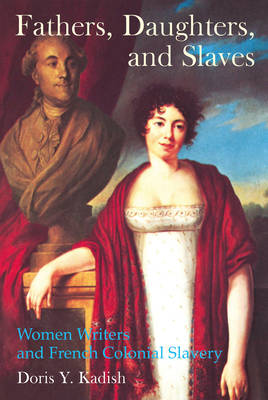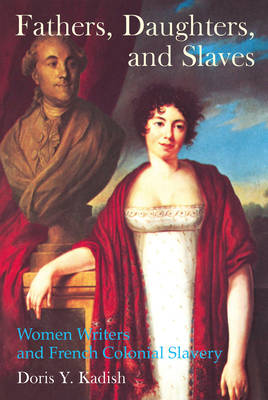
Je cadeautjes zeker op tijd in huis hebben voor de feestdagen? Kom langs in onze winkels en vind het perfecte geschenk!
- Afhalen na 1 uur in een winkel met voorraad
- Gratis thuislevering in België vanaf € 30
- Ruim aanbod met 7 miljoen producten
Je cadeautjes zeker op tijd in huis hebben voor de feestdagen? Kom langs in onze winkels en vind het perfecte geschenk!
- Afhalen na 1 uur in een winkel met voorraad
- Gratis thuislevering in België vanaf € 30
- Ruim aanbod met 7 miljoen producten
Zoeken
€ 192,45
+ 384 punten
Omschrijving
This new study brings to life the unique contribution of French women during the early nineteenth century, a key period in the history of colonialism and slavery. It offers in-depth readings of works by five antislavery writers – Germaine de Staël, Claire Duras, Marceline Desbordes-Valmore, Charlotte Dard and Sophie Doin.
Specificaties
Betrokkenen
- Auteur(s):
- Uitgeverij:
Inhoud
- Aantal bladzijden:
- 196
- Reeks:
Eigenschappen
- Productcode (EAN):
- 9781846318467
- Verschijningsdatum:
- 17/10/2012
- Uitvoering:
- Hardcover
- Afmetingen:
- 163 mm x 241 mm
- Gewicht:
- 239 g

Alleen bij Standaard Boekhandel
+ 384 punten op je klantenkaart van Standaard Boekhandel
Beoordelingen
We publiceren alleen reviews die voldoen aan de voorwaarden voor reviews. Bekijk onze voorwaarden voor reviews.









